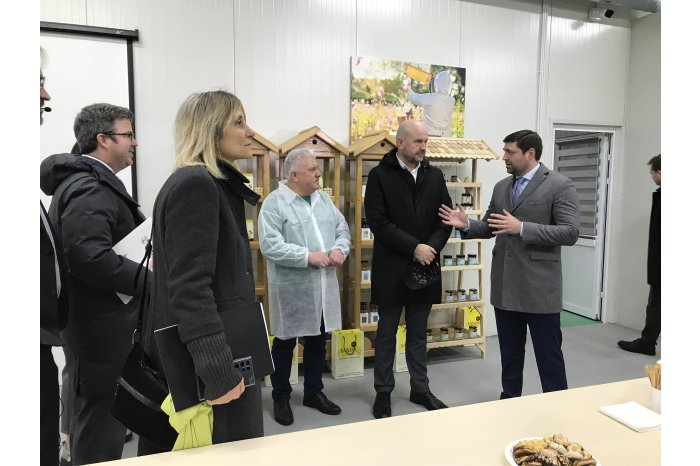Bee cooperative from central Moldova district endowed with photovoltaic system
22:45 | 07.04.2023 Category: Regional
Chisinau, 7 April /MOLDPRES/ - A photovoltaic system has been set on the roof of a centre for processing and packing products, which belongs to a bee cooperative from the central Orhei district. ‘’This is an example which can be replicated in different fields,’’ Deputy Prime Minister, Agriculture and Food Industry Minister Vladimir Bolea said at a ceremony on the system’s inauguration on 6 April.
„Such cooperatives represent a model of efficient management of investments, which tellingly proves that, only by associating, agricultural producers can overcome a string or problems. This is an example which can be replicated in various sectors. This is s European practice, which little by little, takes roots in Moldova as well. It is welcome that the members of the cooperative ruled to use renewable energy. We urge entrepreneurs to be bolder and enhance their energy independence, cut expenses for the electric energy,’’ the official said.
According to the deputy PM, there are more opportunities of financing to this end. ‘’We have diverse projects which provide support in the concerned field. The Agency for Intervention and Payments for Agriculture (AIPA) also provides subsidies for purchasing photovoltaic panels. It is important that producers are aware that the use of energy from renewable sources will stimulate investments, as this is the future of the sustainable agriculture,’’ Vladimir Bolea noted.
The cooperative comprises 12 enterprises in the field and manages together over 7,000 families of bees. The cooperative members provide the entire value chain of collection, processing and packing bee products. The cooperative benefited from a loan on behalf of the state worth about 844,000 lei (over 42,000 euros) and a grant on behalf of the Future Activities Project worth 200,000 lei, as well as the providing of equipment amounting to over 48,000 lei. The capacity of the solar panels’ system is of 164 KW. According to estimations, the concerned investment will generate about 240,000 kWh annually. Thus, the consumption of electric energy will decrease by approximately 65 per cent, which will allow reducing the costs of the final product.
Photo: Agriculture and Food Industry Ministry

